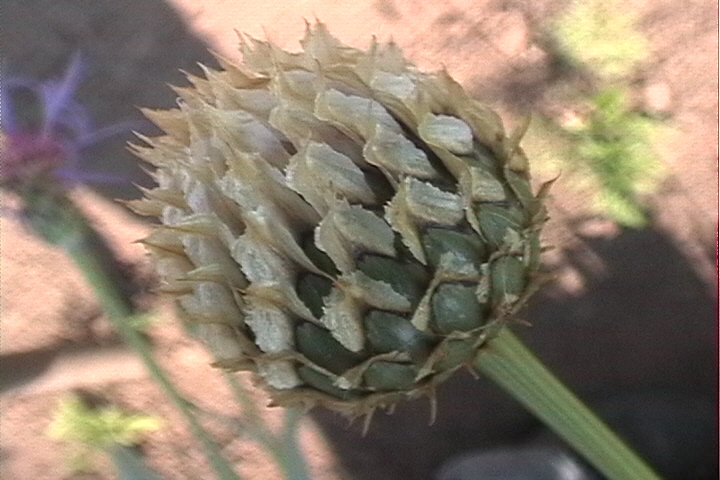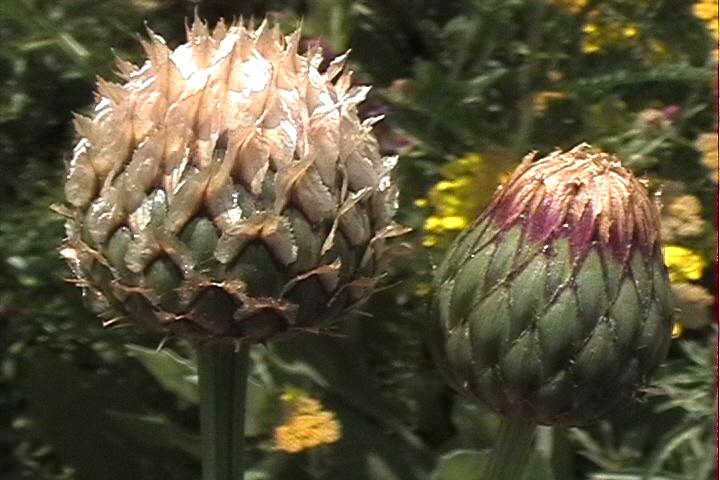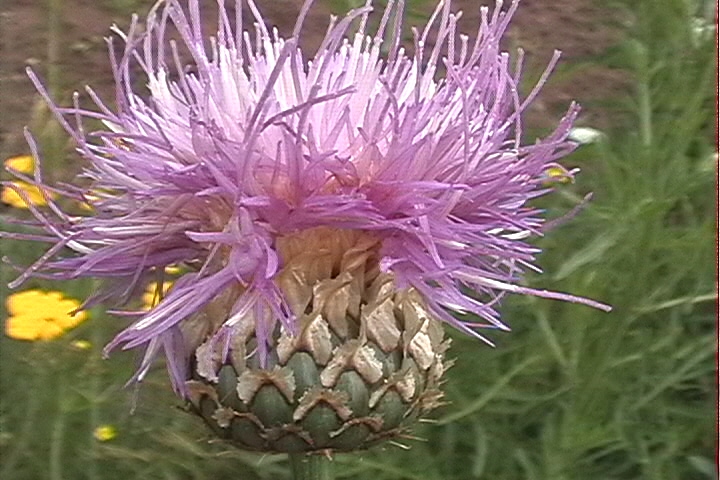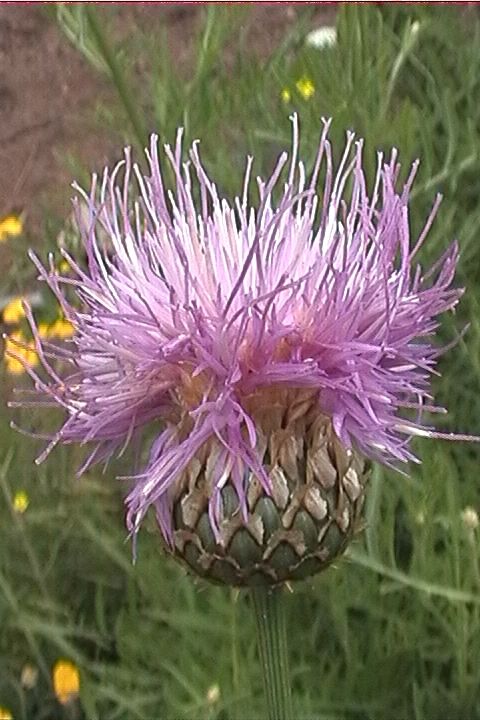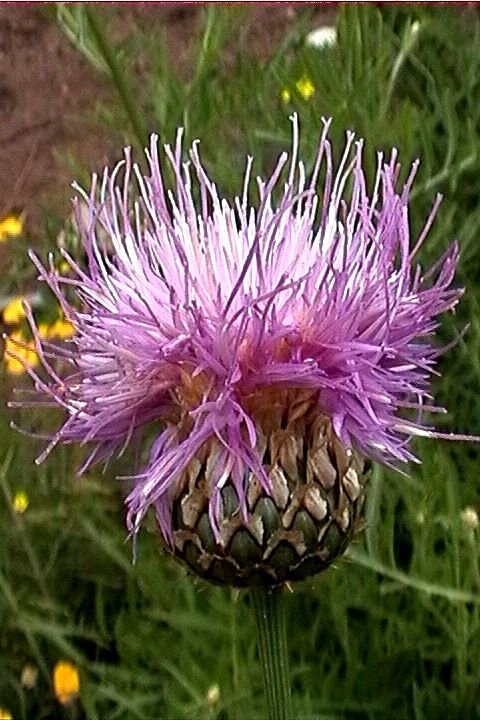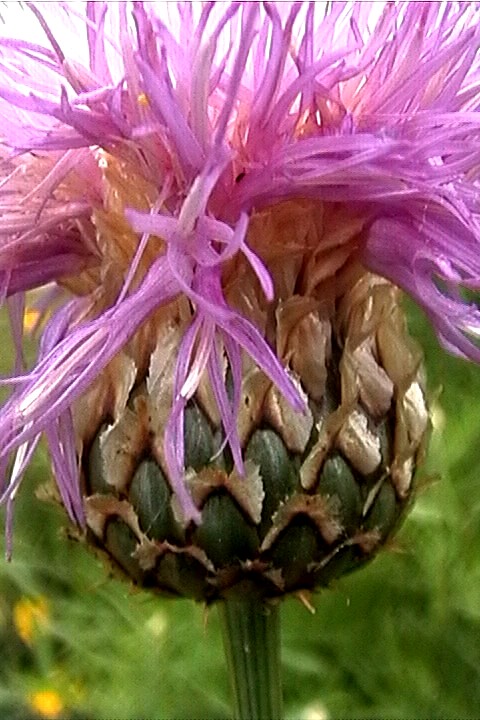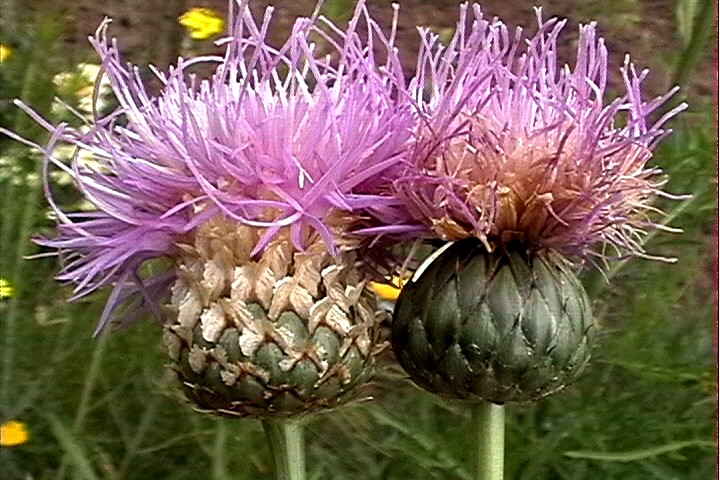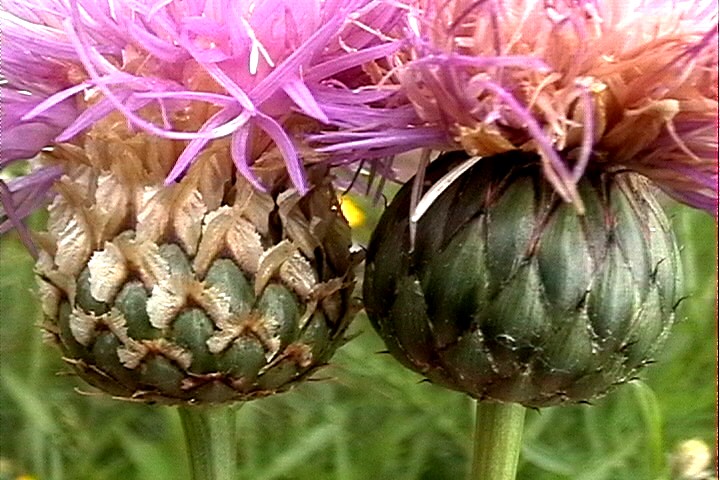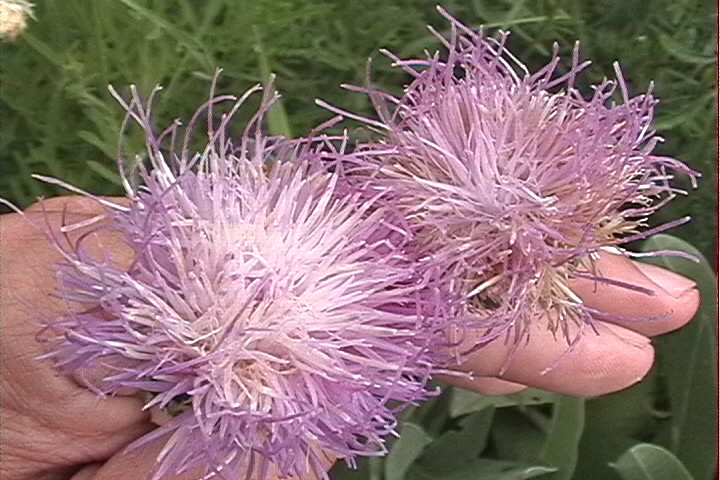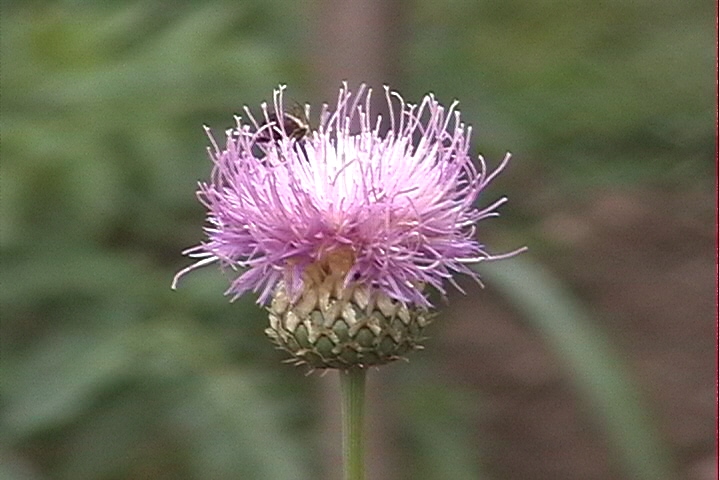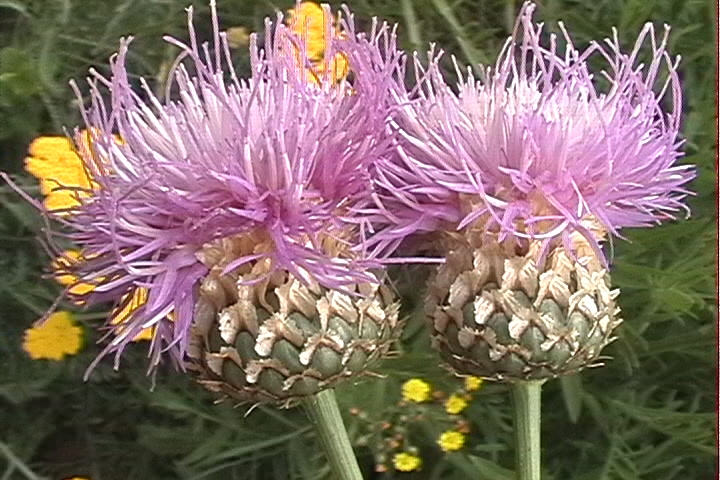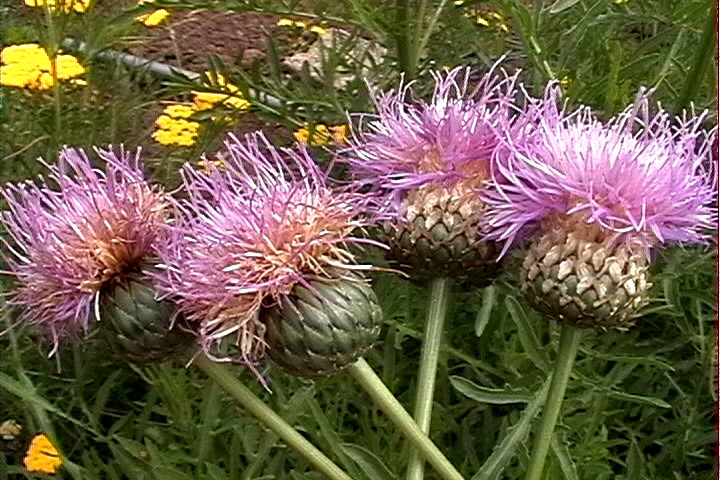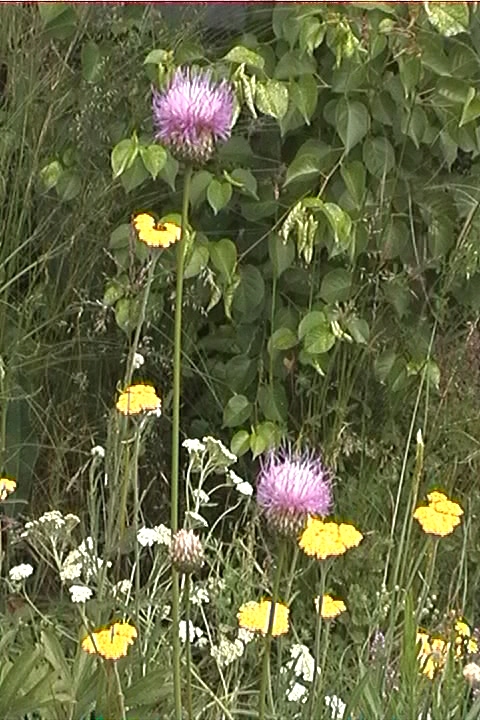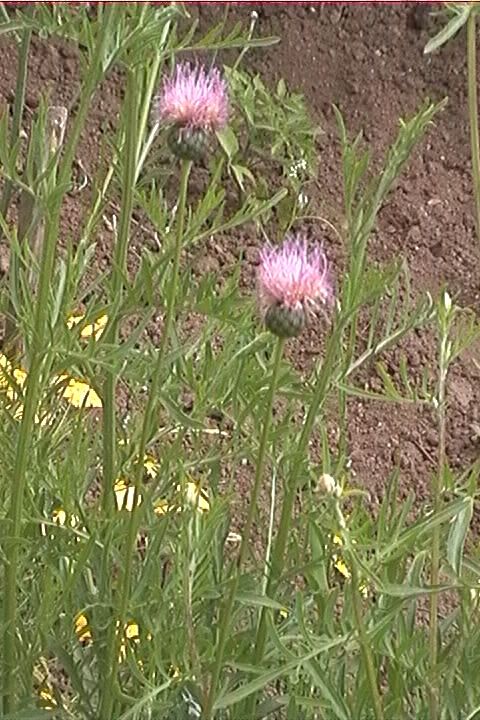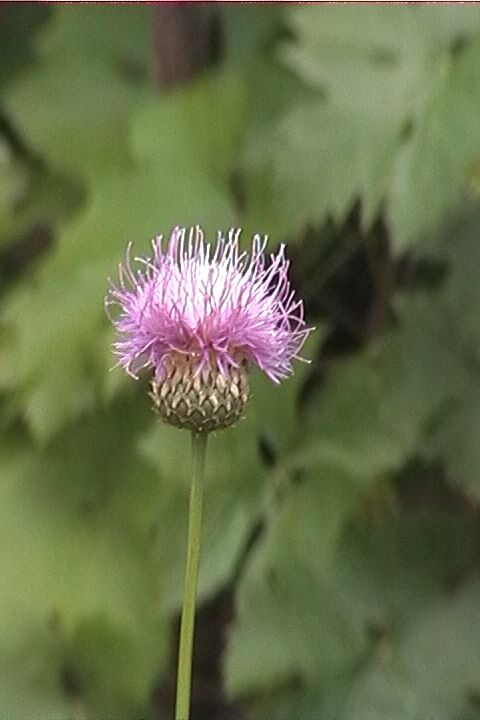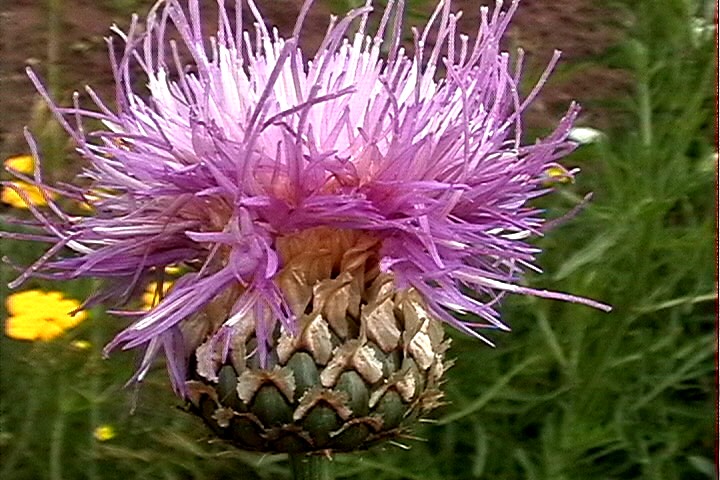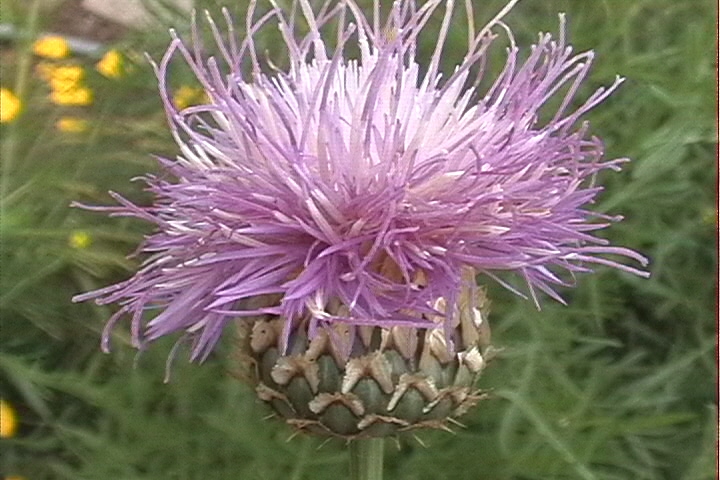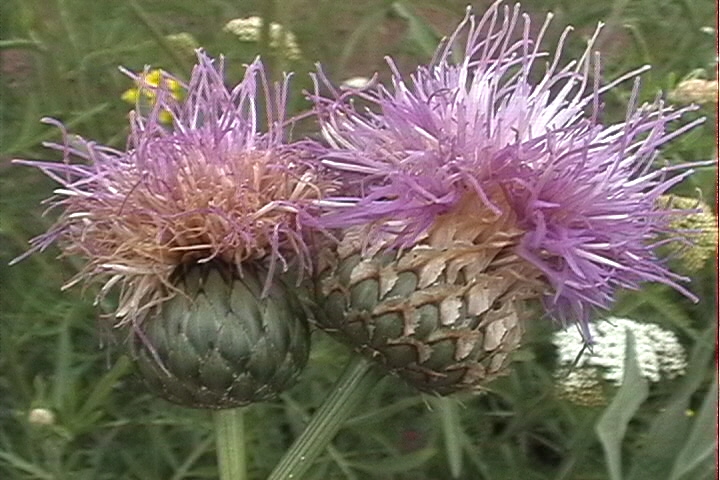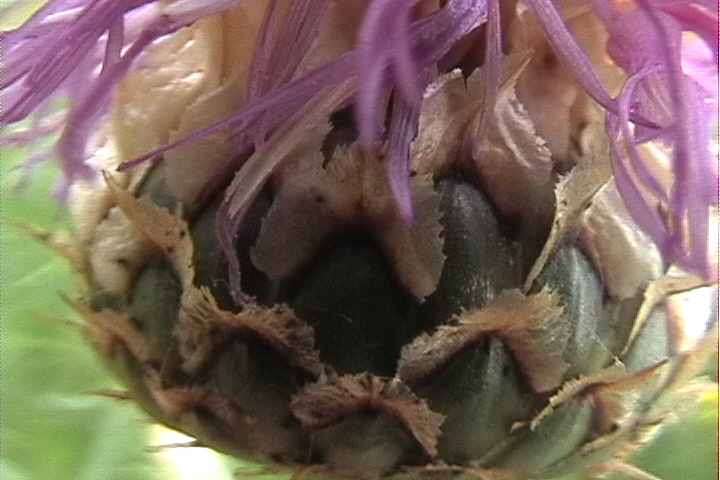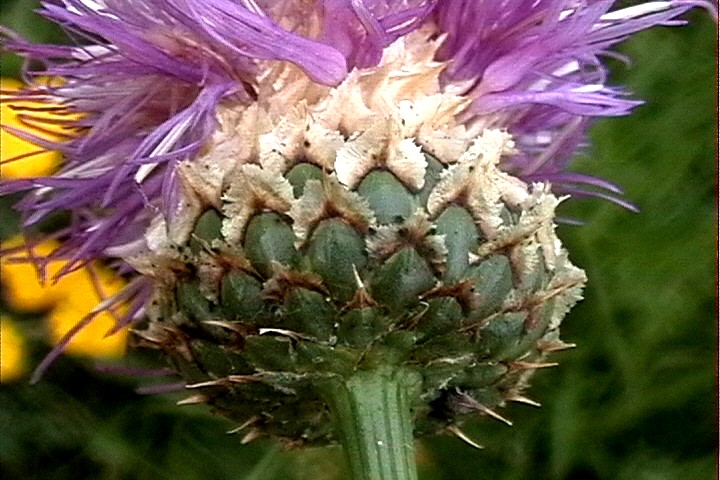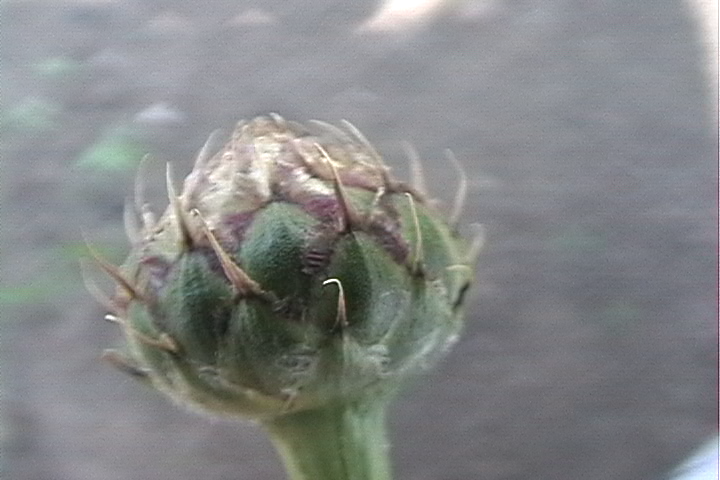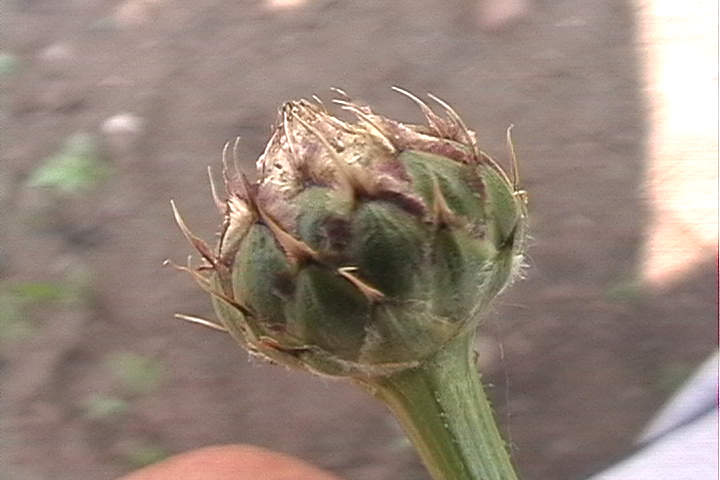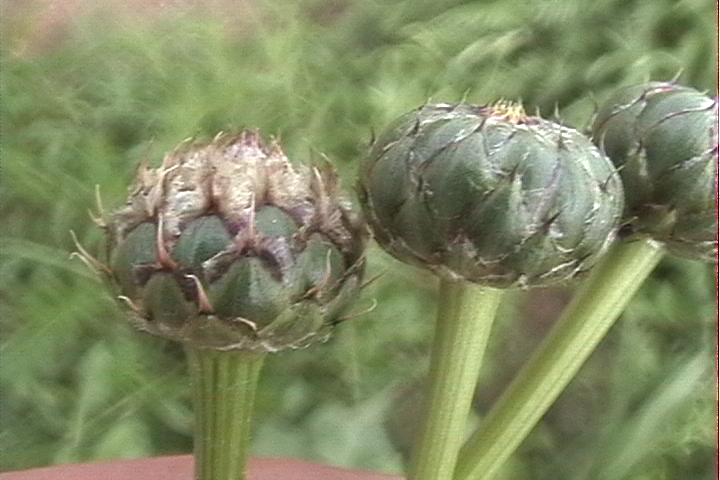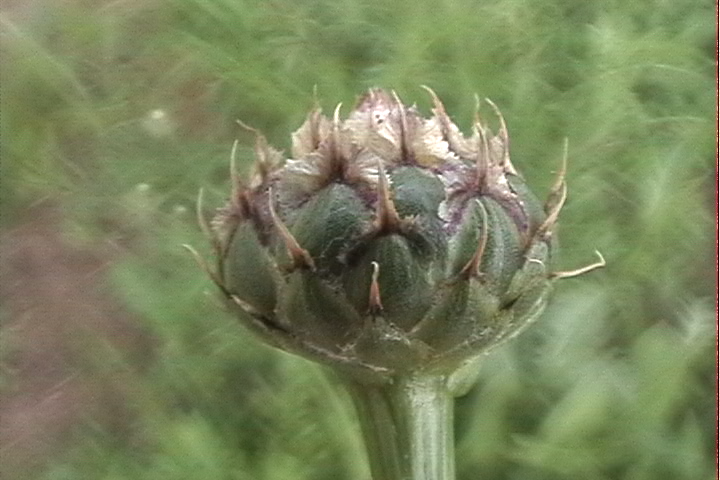home flora of romania endangered species of transylvania endangered habitats of transylvania
Serratula bulgarica Acht. et Stoj.
|
This taxon is totally similar to Serratula lycopifolia with the exception of the developed appendages of the involucral bracts. Maybe after some thorough studies it will be considered only as a subspecies. It is present in Romania in the Lower Siret Plain from eastern Valachia and southern Moldavia and the taxon is known also from Bugeac - south western Ukraine and Bulgaria.Cultivated in my garden from Floresti, Cluj county, June 2005; plants obtained from seeds collected from Spataru Forest near Buzau, Buzau county, in August 2001. dr. Alexandru Badarau, alexandru@transsilvanica.net Cultivated in my garden from Floresti, Cluj county, May 2004, plants obtianed from seeds collected in Spataru Forest, Buzau county, in August 2001. Low resolution images; many of them are dedicated to comparing the anthodia and involucral bracts in the two so closely related taxa, Serratula bulgarica and Serratula lycopifolia. The second species lacks the so developed appendages of the involucral bracts which is such a conspicuous characteristic in the first one. dr. Alexandru Badarau, alexandru@transsilvanica.com
|
